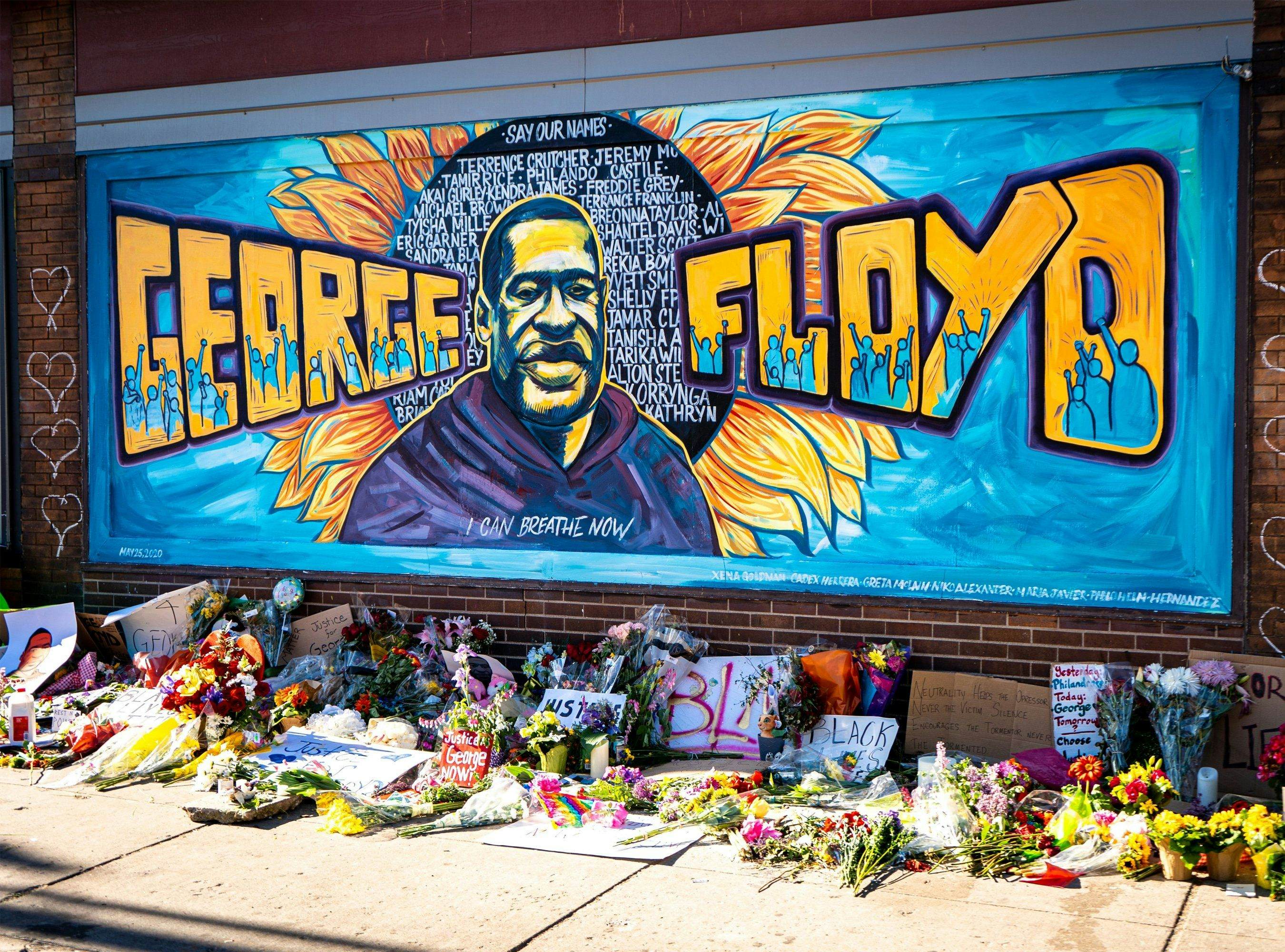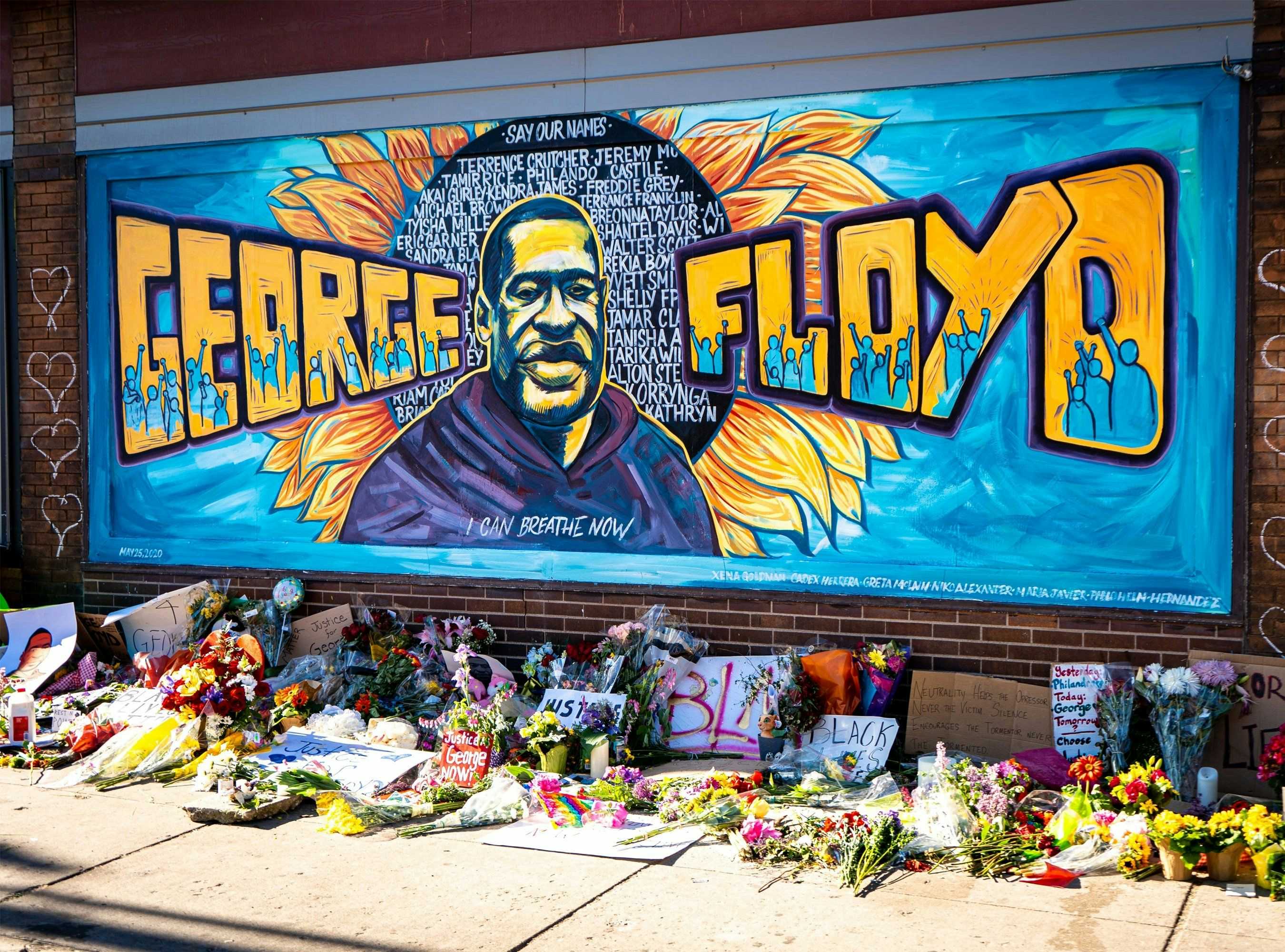The Death that Shocked the Conscience of the World
The settlement announcement arrives in the wake of months of national outrage and protests over Floyd’s death and racism in the justice system. On May 25, 2020, George Floyd, an African American man, died in Minneapolis police custody after he was arrested for allegedly using counterfeit currency at a convenience store. The world watched in horror as videos showed a white police officer, Derek Chauvin, pressing his knee into Mr. Floyd’s neck for approximately eight to nine minutes as Floyd lay on the ground in handcuffs, crying out “I can’t breathe.” Mr. Floyd was pronounced dead at a local hospital following the incident.
Both autopsies—one by a government agency and one by doctors working for the Floyd family—showed that George Floyd’s death was a homicide. The government autopsy said that “Mr. Floyd’s heart stopped beating and his lungs stopped taking in air while he was being restrained by law enforcement.” The government summary also indicated that Mr. Floyd “was intoxicated with fentanyl and had recently used methamphetamines.”
The private autopsy said that the cause of death was mechanical asphyxia, and the manner of death was homicide. The New York Times reports that the private Floyd family autopsy found that George “died not just because of the knee on his neck—held there by the officer, Derek Chauvin—but also because of two other officers who helped pin him down by applying pressure on his back.”
Protests Erupt in the U.S.
George Floyd’s death and treatment at the hands of the Minneapolis police sparked outrage and swarms of protests that rocked the U.S. in the summer of 2020. Protests erupted in at least 140 cities, with the national guard activated in 21 states. The area around the convenience store where Mr. Floyd died erupted into flames and violence—alongside sorrowful murals and showers of flowers. Americans of all races had reached a breaking point after watching a string of Black people mistreated and even murdered by the police in cities across the United States.
The Case & the Settlement
In July 2020, the Floyd family filed a federal civil rights lawsuit against the city of Minneapolis and former officer Chauvin and three additional officers. The complaint states that the “cause of action is for money damages brought pursuant to 42 U.S.C. § 1983 to redress the deprivation under color of state law of George Floyd’s clearly established rights as secured by the Fourth and Fourteenth Amendments to the United States Constitution.”
The family alleged that the tactics the police officers used to restrain Floyd—chokehold with a knee—violated his civil rights. The filing also states that the city failed to properly train the officer-defendants on the appropriate use of force during arrests and intervention when fellow officers use excessive force.
The settlement includes $500,000 for the south Minneapolis neighborhood that includes the 38th and Chicago intersection that has been blocked by barricades since his death, with a massive metal sculpture and murals in his honor. The specifics of the planned investment have not been disclosed yet by the City.
Future Impacts on Civil Rights Cases
Many have already begun to expound on how this record settlement may affect future civil rights lawsuits against cities and police officers. The Floyd family’s lawyer suggests that city councils and mayors now have “27 million reasons” to change their policies on choke-holds and no-knock warrants.
Ben Crump, the family’s lawyer, also said that the settlement offers an alternative to waiting for a result from a legal system where history has taught Black people that “there is no guarantee that a police officer will be convicted for killing a Black person unjustly in our country.” This view insinuates that we may see more federal constitutional rights lawsuits to seek redress in situations of police killings or brutality towards Black Americans.
Some legal observers opine that the settlement announcement could influence the jury to see the settlement as evidence of guilt and convict Chauvin. Others like Chauvin’s defense counsel say knowledge of the settlement will bias jurors against his client. These same dynamics could play out in future suits where both civil rights and criminal lawsuits proceed at the same time.
Criminal Trial Against Former Officer Derek Chauvin
Minneapolis prosecutors have charged former officer Chauvin with second-degree murder, third-degree murder, and second-degree manslaughter. As of March 16th, seven of 12 jurors have been seated for the trial.
Following the settlement announcement, Chauvin’s lead defense attorney asked presiding Judge Cahill to excuse any prospective jurors who claim knowledge of the settlement. The judge denied the request, saying he believes prospective jurors are “capable of setting aside what they’ve seen in the news” and will realize that politics play a role in the settlement along with the legal issues.
USA Today reports that of the four of the 15 prospective jurors Cahill already interviewed indicated they saw the settlement news, with at least three saying they could still be impartial. Cahill has also denied “at this point” Chauvin’s motion to sequester the jury. The court is still considering the defense’s request for a change of venue and continuance.
The racial composition of the jury has also become an issue, with 30+ protestors blocking traffic near the courthouse on Monday to demand a fair trial with a jury that reflects Minneapolis’s demographics. The court disclosed that currently, five of the selected jurors are white. The remaining jurors are one white, one multiracial, one Hispanic, and two Black. Seven of the jurors are in their 20s or 30s, and two are in their 50s, says USA Today. To date, the defense has rejected three prospective Hispanic jurors.




